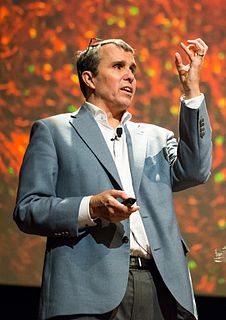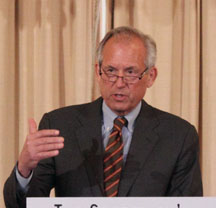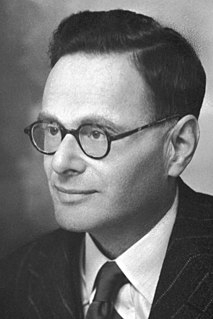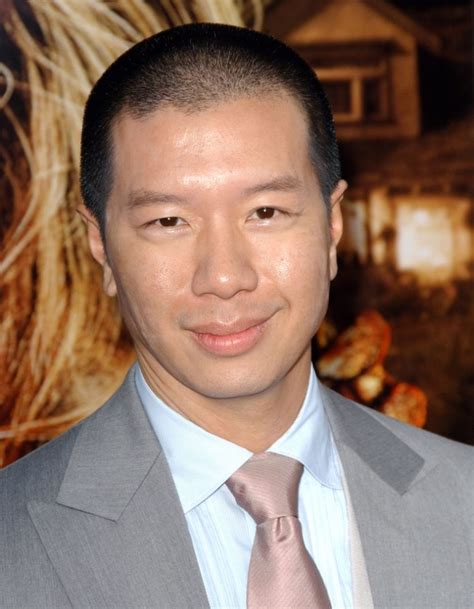A Quote by Eric Betzig
The question was, 'Is there a way of minimizing the amount of damage you're doing so that you can then study cells in a physiological manner while also studying them at high spatial and temporal resolution for a long time?'
Related Quotes
When I wrestled, I would set aside the time to wrestle, so that in my mind it didn't interfere with my study time. If I'd say, "I'm going to study this many hours, then I'm going to go work out and wrestle," then when that time comes, you don't feel like you should be doing something else. That helped me psychologically. But otherwise? When I'm wrestling, I'm not studying the universe. And when I'm studying the universe, I'm not wrestling.
Both in Britain and America, huge publicity has been given to stem cells, particularly embryonic stem cells, and the potential they offer. Of course, the study of stem cells is one of the most exciting areas in biology, but I think it is unlikely that embryonic stem cells are likely to be useful in healthcare for a long time.
I think grief is a huge subject; it's one of the things that everybody is going to confront in one way or another. There's been a lot of books written about how Americans have an odd way of trying to defer grief or minimize the need to grieve. People used to have a lot more ritual grief in their lives. For the most part, we think of it as a strictly temporal process: you grieve for a time and then you're over [it], but it's also a spatial process. It travels across a map.
One of the great intellectual mistakes Einstein made is that he thought that space and time are physically or ontologically entangled. In the present non-spatial universal computational program, space and time happen to be entangled to the extent that, under certain unique circumstances, changes in spatial measurements indicate changes in temporal ones. However, a change in the program itself may cause space and time to disentangle.
When I went to college, it was so easy. And I worked two jobs while I was in school all the way through; I put myself through school. But working and studying was easy for me because I had worked so hard in high school, studying all the time. Taking only three classes and then working was an easy life in comparison.
My central thesis is that combining increased temporal and spatial resolution in MRI techniques with increasingly powerful data correlation techniques will allow the derivation of interpreted meanings from neural signals. I observed, further, that the techniques that exist already allow some correlations.
As human beings, not only do we seek resolution, but we also feel that we deserve resolution. However, not only do we not deserve resolution, we suffer from resolution. We don't deserve resolution; we deserve something better than that. We deserve our birthright, which is the middle way, an open state of mind that can relax with paradox and ambiguity.
The research I have been doing - studying how foodstuffs yield energy in living cells - does not lead to the kind of knowledge that can be expected to give immediate practical benefits to mankind. If I have chosen this field of study, it was because I believed in its importance in spite of its theoretical character.
What differentiates time from space is that time does have a direction. In that sense it is different from space. I think that's certainly true that whereas spatial dimensions don't have direction or an arrow, time does. It runs from past to future. But I see that arrow of time as rooted in a deeper metaphysical reality, namely the reality of temporal becoming - of things coming to be and passing away. That is why time has this arrow. But it's not sufficient to simply say that time and space are distinct because time has a direction. The question will be: why does it have a direction?
First, if it is true that a spatial order organizes an ensemble of possibilities (e.g., by a place in which one can move) and interdictions (e.g., by a wall that prevents one from going further), than the walked actualizes some of these possibilities. In that way, he makes them exist as well as emerge. But he also moves them about and he invents others, since the crossing, drifting away, or improvisation of walking privilege, transform, or abandon spatial elements.




































